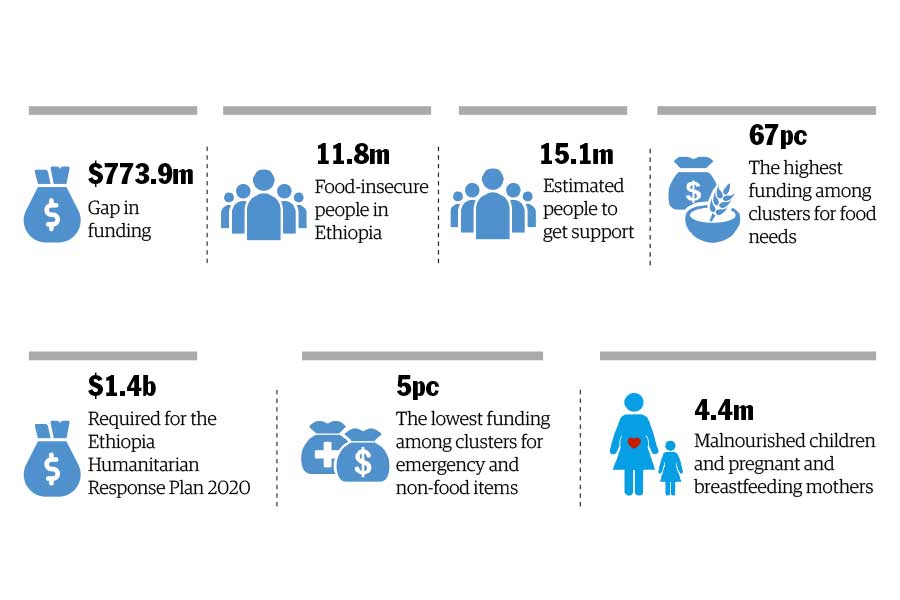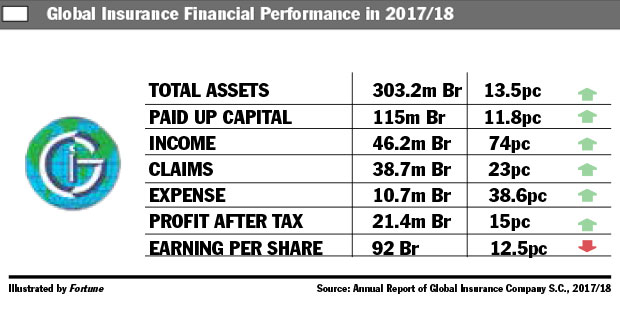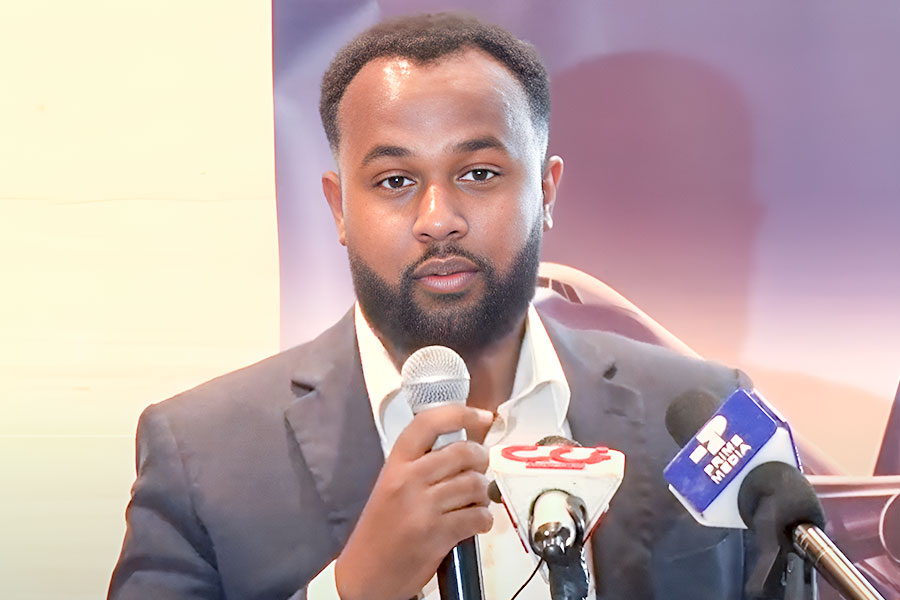
Sep 27 , 2020
By Bereket Kefyalew , Rahel Kassa
Despite positive efforts to develop a COVID-19 vaccine, the significance of making medical supplies and goods accessible to all seems to be neglected. This has in large part to do with a medical patent and innovation global system more interested with ensuring profit than access, write Bereket Kefyalew (beereketaal26@gmail.com), director of startup and innovation promotion, and Rahel Kassa (rahikassa16@gmail.com), researcher at a technology and innovation institute who writes about global innovation and human security issues.
The Novel Coronavirus (COVID-19) pandemic has disrupted the economic and political status quo besides its immediate health impacts. It has exposed the gaps and weaknesses of our national and international systems. Similarly, it has also made us question the effectiveness of the existing global legal and innovative structures, especially in the public medical science and public health arena.
Since its outbreak, the virus has been puzzling scientists. We still do not have a clear understanding of how to curb its spread. Many, however, are convinced that the ultimate solution is to develop a vaccine. As a result, several medical actors across the globe are in a rush to come up with a safe and effective vaccine. Thus far, there has been promising progress.
Despite the positive efforts to develop a vaccine, however, the significance of making the vaccine and medical supplies accessible to all seems to be neglected. This has in large part to do with medical patents and innovation.
The recognition of COVID-19 as a global pandemic compels integrated and innovative measures to protect people’s human security. Of such measures, utilising inventions and innovations sheltered through intellectual property laws is among the most important.
The rationale for global intellectual property (IP) rights protection is for the common good - public disclosure of innovations in return for the exclusive right of use for a limited period. This is believed to promote innovation. Biopharmaceutical companies thrive on this notion.
Patents provide legitimate rights to inventors to prohibit others from utilising, selling, exporting or importing their inventions for a fixed period until they become generic drugs. Patents have become the emerging institutions that regulate the disruptive aspects of the commercial use of biopharmaceutical products. This means that they are crucial in terms of influencing the way benefits are engendered and distributed in the biopharmaceutical industry.
While patents can be enormously important economic assets for firms, the system allows for the unequal distribution and concentration of patent and imbalanced share of benefits obtained from medical inventions. This is exacerbated by the World Trade Organisation’s (WTO) Trade-Related Aspects of Intellectual Property Rights agreement that enables firms to control markets and place restrictions on access to and utilisation of their products and technologies.
The contemporary IP system appears to silently bar judicious use of medical inventions to save lives, especially during pandemics such as COVID-19. Arguably, our current global medical-industrial complex can adequately address the public health crisis. The main question is what happens if a patented treatment proves to be effective against COVID-19. The excluding nature of our patent system, unless addressed by curative measures, could hamper worldwide usage of and accessibility to forthcoming vaccines.
In the past, the global public health system was blamed for its failures associated with the H1N1 virus, which was responsible for the swine flu outbreak. This included the inaccessibility of the treatment, monopoly, unreasonably high costs and unequal distribution.
In the same token, we already are seeing pharmaceutical companies such as Sanofi expressing plans to provide medical supplies primarily to the country – the United States – that is paying for them. This is although the firm is a French company. This has been opposed by some, including the European Union and French officials that argued that the vaccine should be a global public good. Such controversies follow on the heels of the unequal distribution of medical supplies such as testing kits, respirators or medical-grade masks across the globe.
To have legitimate concern regarding the behaviour of the profit-driven global medical-industrial complex to provide satisfactory access to new biopharmaceutical inventions for all is justified. Private “owners” of the inventions can restrict access based on commercial considerations. As a result, higher prices for biopharmaceuticals and other healthcare inventions could prevent low-income consumers in developing countries from obtaining life-saving medications and equipment.
To overcome such a risk, multilateral governance and regional integration are required. The association between IP rights, innovation and public health needs to be anchored in promoting inclusive innovation that takes into consideration the needs of the vulnerable as well. This is important to ensure that the medical industry considers all of us, from the medical treatment development stage to the distribution of medicines.
Leaders, international organisations and global influencers have come together and are calling for a global agreement on COVID-19 vaccines, diagnostics and treatments to be under the umbrella of the World Health Organisation (WHO).
“Only a people’s vaccine – with equality and solidarity at its core – can protect all of humanity and get our societies safely running again,” they said in a unanimous letter. “A bold international agreement cannot wait.”
Canada has made an exemplary move by introducing a COVID-19 bill that allows the commissioner of patents to authorise the Federal Ministry of Health and others to use patented inventions without legal consequence as needed in fighting the pandemic. Governments in Chile, Ecuador, Germany and Israel have also taken similar steps. Organisations such as the Medecins Sans Frontiers are also voicing their support for any future COVID-19 vaccines to be sold at cost and be made accessible to all.
UN Secretary-General António Guterres has also indicated that a COVID-19 vaccine must be considered a global good. Although there are various efforts to develop a treatment locally for COVID-19 in Africa - from Madagascar to Ethiopia - there is a shortage of resources to auction for them in a competitive global market and a human and technological inadequacy to develop an effective vaccine.
Although these efforts are to be appreciated, a strong and unified global coordinated effort is needed from all governments. This requires balancing context-specific responses to respond to occurrences that threaten fundamental human security needs. Yet for governments to adequately fulfil their responsibility, a global system that duly makes access a priority needs to be instituted. This also calls for the use of a rights-based approach as an underlying justification for interventions aimed at protecting the public and as a catalyst by state and non-state actors to strengthen their capacity to respond and be accountable in protecting, respecting and fulfilling human rights.
The urgency of saving lives, especially during pandemics, entails humanising the contemporary patent laws and innovation systems as well as engineering sound and proactive protection schemes. The epidemic, here too, is acting as a dire reminder of how broken global systems and institutions are.
PUBLISHED ON
Sep 27,2020 [ VOL
21 , NO
1065]

Fortune News | Oct 11,2020

Commentaries | Jun 18,2022

Fortune News | Aug 31,2020

Radar | Jan 19,2024

Commentaries | Jul 18,2021

Commentaries | Apr 28,2024

Featured | Sep 11,2020

Life Matters | Jul 17,2022

Commentaries | Jul 01,2023

Viewpoints | Oct 28,2023

My Opinion | 131460 Views | Aug 14,2021

My Opinion | 127812 Views | Aug 21,2021

My Opinion | 125791 Views | Sep 10,2021

My Opinion | 123426 Views | Aug 07,2021

Dec 22 , 2024 . By TIZITA SHEWAFERAW
Charged with transforming colossal state-owned enterprises into modern and competitiv...

Aug 18 , 2024 . By AKSAH ITALO
Although predictable Yonas Zerihun's job in the ride-hailing service is not immune to...

Jul 28 , 2024 . By TIZITA SHEWAFERAW
Unhabitual, perhaps too many, Samuel Gebreyohannes, 38, used to occasionally enjoy a couple of beers at breakfast. However, he recently swit...

Jul 13 , 2024 . By AKSAH ITALO
Investors who rely on tractors, trucks, and field vehicles for commuting, transporting commodities, and f...

Jun 28 , 2025
Meseret Damtie, the assertive auditor general, has never been shy about naming names...

Jun 21 , 2025
A well-worn adage says, “Budget is not destiny, but it is direction.” Examining t...

Jun 14 , 2025
Yet again, the Horn of Africa is bracing for trouble. A region already frayed by wars...

Jun 7 , 2025
Few promises shine brighter in Addis Abeba than the pledge of a roof for every family...

Jun 29 , 2025
Addis Abeba's first rains have coincided with a sweeping rise in private school tuition, prompting the city's education...

Jun 29 , 2025 . By BEZAWIT HULUAGER
Central Bank Governor Mamo Mihretu claimed a bold reconfiguration of monetary policy...

Jun 29 , 2025 . By BEZAWIT HULUAGER
The federal government is betting on a sweeping overhaul of the driver licensing regi...

Jun 29 , 2025 . By NAHOM AYELE
Gadaa Bank has listed 1.2 million shares on the Ethiopian Securities Exchange (ESX),...